Benefits of Using Organic Skin Care Products
The world of skincare is vast and overwhelming, but one thing remains constant: the desire for clean, healthy, and glowing skin. You don't have to be an aesthetician or beauty enthusiast to understand the importance of using organic, natural products for your skin. Clean skincare can be easy and so rewarding! In this comprehensive guide, we'll go through the essential building blocks of a clean skincare routine, tailored to each unique skin type. By the end, you'll be equipped with the knowledge to create your own personalized, natural, and organic skin care regimen. Ready? Let's go!
@beauty.by.earth When your Beauty by Earth package arroves 😍✨💕 #cleanbeauty #beautybyearth #cleanbeauty #leapingbunny #unboxing #mademebuyit ♬ original sound - Beauty By Earth
Importance of Clean Skincare
Clean skincare is about using natural skin care, using products made with natural, certified organic ingredients only, and non-toxic ingredients that are not only safe for your skin but also environmentally sustainable. By avoiding synthetic chemicals, clean beauty products promote healthier skin while reducing the risk of irritation, allergies, and long-term health issues.

Beauty by Earth is a prime example of one of a kind brand whose products focus on clean, organic ingredients and sustainable products. They are committed to providing safe, effective, and eco-friendly products that make a positive impact on both your skin and the environment.
Identifying Your Skin Type
Before diving into all the ingredients, various essential oils and building blocks of a clean skincare routine, it's crucial to know your skin type. There are four primary skin types: normal, oily, dry, and combination. Understanding your skin type will help you select the appropriate organic products to achieve optimal results. Here's a quick overview of each skin type:
a) Normal Skin: Not with skin feeling too dry or oily, normal skin has a balanced sebum production and generally smooth skin has a smooth texture and even tone.
b) Oily Skin: Characterized by excess oil production, oily skin often appears shiny and is prone to enlarged pores and breakouts.
c) Dry Skin: With insufficient sebum production, dry the skin feels and can feel tight, rough, and flaky. It's more susceptible to fine lines and wrinkles.
d) Combination Skin: A mix of two or more skin types, combination skin usually has an oily T-zone (forehead, nose, and chin) and dry or normal cheeks.

The Building Blocks of a Clean Skincare Routine
Now that you've identified your skin type, let's delve into the essential steps of a clean skincare routine, tailored to organic skin care and your specific needs.

Step 1: Cleansers by Skin Type
Cleansing is the foundation of any skincare routine. A gentle, organic cleanser removes dirt, oil, and makeup without stripping the skin's natural moisture barrier. When shopping for a natural cleanser, it's crucial to focus on gentle, effective ingredients that can remove dirt, oil, and makeup without compromising the skin's natural moisture barrier. Look for plant-derived surfactants, such as coco-glucoside and decyl glucoside, which are mild and biodegradable, ensuring a gentle cleansing experience.
@beauty.by.earth Love skincare? ✅ Love natural ingredients ✅ Love saving $$? ✅ Check out the Essentials club! Its the best natural ingredients skincare at only $1.80 a day! #notobsessed #okobsessed #essentialsclub #beautybyearth ♬ original sound - Beauty By Earth
Key ingredients like aloe vera and glycerin can provide soothing and hydrating properties while cleansing, preventing the skin from feeling tight or dry. Fruit enzymes, such as papaya and pineapple extract, can offer gentle exfoliation, helping to remove dead skin cells and promote a brighter complexion.
Tea tree oil and witch hazel are excellent additions for oily or acne-prone skin, as they help regulate sebum production and possess natural antibacterial properties. For drier skin types, ingredients like chamomile, calendula, and oat extract can provide extra nourishment and calm irritation. By focusing on these natural, skin-friendly ingredients in a cleanser, you'll ensure a thorough yet gentle cleansing experience that benefits both your skin and the environment.

Cleansers for Normal Skin
For normal skin, try Beauty by Earth's Superfruits and Sea Kelp Facial Cleanser. Its antioxidant-rich formula maintains the skin's natural balance while cleansing.
Cleansers for Oily Skin
Oily skin types can benefit from a Peppermint Tea Tree Foaming Face Wash, which helps regulate oil production and minimize breakouts without over-drying the skin.
Cleansers for Dry Skin
Dry skin types should opt for a nourishing, hydrating cleanser like a Citrus Lavender Foaming Face Wash. It's got gentle, nourishing ingredients like aloe vera and lavender provide essential moisture while cleansing away dirt and oils.

Cleansers for Combination Skin
For combination skin, consider using a cleanser that addresses both oily and dry areas, such as a Charcoal Facial Bar.
Step 2: Toning by Skin Type
A toner helps to balance your skin's pH, tighten pores, and prepare it for the following skincare steps. Opt for a gentle, alcohol-free toner formulated with natural ingredients.
Toners for Normal Skin
Normal skin types can benefit from a Vitamin C Toner, which refreshes and revitalizes the skin back to a lustrous glow. With skin-nourishing, certified organic ingredients, it's got everything your face is craving.

Toners for Oily Skin
Oily and combination skin types should look for a toner with astringent properties, like a Rose Water Toner, which helps reduce excess oil and tighten pores.
Toners for Dry Skin
For dry skin, choose a hydrating toner with Hyaluronic Acid, which soothes and moisturizes the skin.
Step 3: Exfoliation by Skin Type

Exfoliating your skin helps to remove dead skin cells and unclog pores, promoting a smoother, brighter complexion. Be sure to use gentle, natural exfoliants suitable for your skin type, and limit exfoliation to 1-2 times per week.
Exfoliators for Normal Skin
For normal and combination skin types, consider a Coffee & Sugar Body scrub. It'll give your skin a beautiful, rich glow while gently removing flaky, dead skin cells.

Exfoliators for Oily Skin
Oily skin types can benefit from a Peppermint & Tea Tree Body Scrub, which effectively unclogs pores and helps your skin reduce oil production. Oh, and it leaves skin feeling super fresh and tingly. 🥰
@beauty.by.earth the hydration your skin will feel after using this> #bodyscrub #exfoliation #exfoliate #skincare #bodycare #organicingredients #crueltyfree #glowing ♬ Original sound - 💛Honeybee_Inc💛
Exfoliators for Dry Skin
Dry skin types should opt for a gentle, hydrating exfoliant like Beauty by Earth's Citrus Lavender Body Scrub, which exfoliates while providing essential moisture.
@beauty.by.earth this sugar citrus lavender body scrub is ✨chefs kiss✨ #bodyscrubreview #bodyscrubsyouneed #bodyscrub #sugarbodyscrubs #citruslavender #lavenderscrub ♬ original sound - ItsVyvica
Step 4: Serums and Treatments by Skin Type
Serums and treatments target specific, skin care concerns with potent, concentrated ingredients. Choose a serum or treatment based on your skin type and concerns, such natural skin care such as hydration, anti-aging, or acne.
Serums for Normal Skin
Normal skin types can try a Vitamin C serum for max benefits! It brightens and hydrates the skin while protecting against environmental damage. It's one of the best organic skin care serums out there.
Serums for Oily Skin
Oily and combination skin types can benefit from a Bakuchiol Facial Serum. This silky serum helps improve skin's brightness, tone, and texture while minimizing pores and diminishing fine lines. It's perfect for helping you achieve firmer, plump-looking skin. It includes Castor seed oil which is known to help prevent acne breakouts, and reduce puffiness, problems most oily skin babes know all too well.
Serums for Dry Skin
For dry skin types, consider using a Hyaluronic Acid Serum. This light-weight, gel-like serum taps into the hydrating power of Hyaluronic Acid to give dry skin new life! Don't be surprised by your youthful, hydrated glow after using this baby.
Step 5: Moisturizers by Skin Type
Regardless of your skin type, moisturizing is a crucial step in maintaining healthy, balanced skin. Choose an organic, natural moisturizer that suits your skin type and needs.When searching for a natural moisturizer, it's essential to look for nourishing and hydrating ingredients that cater to your skin's specific needs. Some key natural ingredients to consider include hyaluronic acid, a powerful humectant that retains moisture, keeping the skin plump and hydrated.

Plant-based oils, such as jojoba oil, argan oil, and rosehip oil, are rich in fatty acids and antioxidants that nourish and repair the skin's barrier. Shea butter and cocoa butter offer deep hydration and help to lock in moisture, making them ideal for drier skin types.
@beauty.by.earth intense hydration for radiant & glowing skin for all skin types ✨ #cleanbeauty #hyaluronicacid #beautybyearth #moisturizingcream #nighttimeskincare ♬ original sound - EX7STENCE™
Look for soothing ingredients like aloe vera and chamomile, which have calming properties and can reduce redness and inflammation. Finally, consider the inclusion of natural antioxidants like green tea and vitamin C, which can protect the skin from environmental damage and promote a brighter, more even complexion. By seeking out these natural, skin-loving ingredients, you'll ensure that your moisturizer is both effective and safe for your skin, as well as the environment.
Moisturizers for Normal Skin
For normal skin types, look for a Vitamin C-rich moisturizer that offers lightweight hydration while protecting skin texture against environmental stressors.
Moisturizers for Oily Skin
Oily skin types can benefit from an Oil-Control Moisturizer with Aloe, Peppermint, and Witch Hazel. You'll get the benefit of hydration without clogging pores or causing breakouts.
Moisturizers for Dry Skin
Dry skin types should opt for a richer moisturizer, like a Hyaluronic Acid Night Cream, which locks in moisture and repairs the skin's barrier.
@_.bb3lla._ Come wind down with a little self care using @beautybyearth products! Loving these products so gentle yet effective on the skin! Amazing smell feels like cleanly paradise 🤍 10/10 would recommend! Products used : - @beautybyearth super fruits &sea kelp Face wash - @beautybyearth hyaluronic acid hydrating night cream - @beautybyearth coffee bean eye cream Use code : BELLAEARTH to save $$ at checkout 🤍 #selfcare #beauty #skincare #amazonfinds #explore #beautybyearth ♬ Pretty Girl - Clairo
Moisturizers for Combo Skin
Combination skin types can try a Bakuchiol anti-aging moisturizer. It's smooth, light-weight and targets both dry and oily areas for a balanced complexion.
Step 6: Sun Protection by Skin Type
Sun protection is essential for all skin types to prevent premature aging and skin damage. Choose a natural, mineral-based sunscreen with broad-spectrum coverage. Why? Sadly, conventional sunscreens contain harmful chemicals like oxybenzone and octinoxate.

These bad boys contribute to the bleaching and death of coral reefs. These chemicals can cause coral bleaching, disrupt marine life reproduction, and harm various aquatic organisms. By choosing sunscreens with reef-safe ingredients, you not only protect your skin from harmful UV rays but also contribute to the preservation of delicate marine ecosystems.

Zinc oxide sunscreen is an excellent example of a reef-safe alternative, as it provides broad-spectrum protection without negative environmental impact. As a mineral-based sunscreen, zinc oxide sits on the skin's surface, physically blocking and reflecting UV rays, rather than being absorbed into the skin like chemical sunscreens. By opting for a zinc oxide sunscreen, you can enjoy effective sun protection while minimizing harm to our planet's precious coral reefs and marine life.
@beauty.by.earth All of our sunscreens swatched: PART 1 - Untinted ☀️Mineral Sunscreen Spray - SPF 30 with translucent zinc oxide (4 scents 🥰) ☀️Mineral Sunscreen Body Lotion - SPF 25 ☀️Mineral Facial Sunscreen - SPF 20 ☀️Untinted Mineral Facial Sunscreen Stick - SPF 30 Which one is your fave?
Sunscreen For Oily Skin
For oily skin, you'll need a sunscreen without heavy, greasy ingredients. Look for sunscreens that are lightweight and won't clog pores. Sunscreens with a matte finish can help keep your skin looking smooth and shine-free throughout the day. Ingredients like aloe vera, green tea extract, and vitamin E can also be beneficial in keeping oily skin in check.
Sunscreen For Dry Skin
Mineral Sunscreen SPF 25 is perfect for all skin types, but particularly for babe's with dry skin. It's great at providing an effective protection for healthy skin against harmful UVA and UVB rays without the use of harsh chemicals. Because it's filled with skin moisturizing ingredients like coconut oil and aloe vera, this body sunscreen is perfect for babes with skin on the dry side.

Sunscreen for Combo Skin
If you've got combination skin, try an all-around good sunscreen like Beauty by Earth's Spray SPF 30 Spray Mineral Sunscreen. This sunscreen provides broad-spectrum protection while promoting a more even skin tone and texture. It's also infused with antioxidants such as vitamin E that act as anti-aging agents and shield your skin from harsh rays. It's light-weight and comes in 4 scents—Coconut Vanilla, Peppermint Vanilla, Peppermint Geranium, and Unscented. The unscented spray sunscreen is also perfect for babe's with sensitive skin.

Matching Products to Skin Type is Key
By understanding your skin type and incorporating the best in organic and natural skin care products and, clean products essential vitamins into your daily routine, you'll be well on your way to achieving a healthy, glowing complexion. Beauty by Earth's range of natural skincare products provides an excellent starting point for building your personalized clean skincare routine. Embrace the power of nature and enjoy the benefits of clean beauty for your skin and the environment.

What is the Environmental Impact of Toxic Skincare Products?
The environmental impact of toxic skincare products is an often-overlooked aspect of the beauty industry, but it is just as important to consider as the effects these products have on our skin. Many conventional and natural skin care products contain chemicals and synthetic ingredients that, when washed down the drain, can contaminate water sources, harm aquatic life, and disrupt ecosystems.
@going.toxless One of the easier toxins to avoid! #parabens #noparaben #infertilitytiktok #endocrinedisruptingchemicals #ditchtoxicchemicals #ingredientstoavoid #readthelabel ♬ UNDERWATER WONDERSCAPES (MASTER) - Frederic Bernard
Sure, companies talk about the impact of chemical sunscreens on bleaching reefs and killing coral life, but this is only one aspect of the impact of beauty products on our earth. Furthermore, these harmful chemicals can accumulate over time and have long-term consequences on the environment, including contributing to air and water pollution, as well as soil degradation.
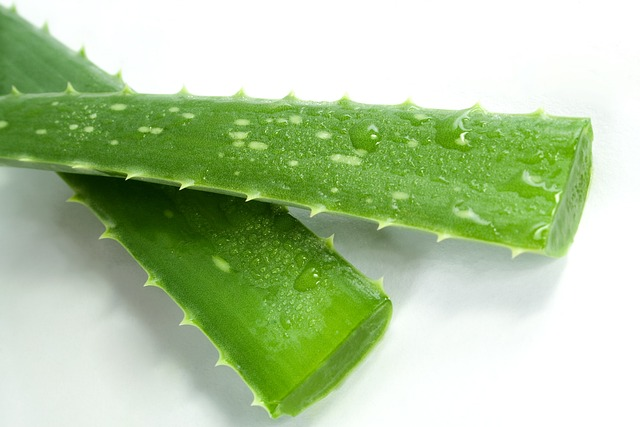
In addition to the harmful effects of the ingredients themselves, the packaging and production of toxic skincare products contribute to environmental issues, such as plastic pollution and waste. Many beauty products come in single-use plastic containers, which end up in landfills or oceans, causing harm to wildlife and marine life.
By choosing clean, certified organic skin care products like those offered by Beauty by Earth, you're not only promoting healthier skin but also supporting sustainable practices that minimize negative environmental impacts. . Clean beauty brands and certified organic skin care brands often prioritize eco-friendly packaging and ethical manufacturing processes, demonstrating their commitment to preserving the planet's well-being for future generations.
But don't take our word for it . . . Here's what the experts have to say:
-
Kookana, R. S., Williams, M., Boxall, A. B., Larsson, D. G., Gaw, S., Choi, K., ... & Ying, G. G. (2014). Potential ecological footprints of active pharmaceutical ingredients: an examination of risk factors in low-, middle- and high-income countries. Philosophical Transactions of the Royal Society B: Biological Sciences, 369(1656), 20130586. doi:10.1098/rstb.2013.0586
-
Gouin, T., Roche, N., Lohmann, R., & Hodges, G. (2011). A thermodynamic approach for assessing the environmental exposure of chemicals absorbed to microplastic. Environmental Science & Technology, 45(4), 1466-1472. doi:10.1021/es1032025
-
Hartmann, N. B., Hüffer, T., Thompson, R. C., Hassellöv, M., Verschoor, A., Daugaard, A. E., ... & Wagner, M. (2019). Are we speaking the same language? Recommendations for a definition and categorization framework for plastic debris. Environmental Science & Technology, 53(3), 1039-1047. doi:10.1021/acs.est.8b05297
Is Organic Skincare for Women More Expensive?
When it comes to organic skin care for women, the question of cost often arises. It's a common misconception that organic products are always more expensive than their non-organic counterparts. While it's true that some premium organic brands may come with a higher price tag due to the sourcing of high-quality, eco-friendly, certified organic ingredients and sustainable production methods, not all organic skincare options are necessarily more expensive.
In fact, that's one of the primary aims of Beauty by Earth: to offer a wide range of affordable organic skincare products for all budgets and skin types. By doing some thorough research and comparing product offerings, consumers can find organic skincare options that are not only effective and natural but also reasonably priced. Ultimately, investing in organic skincare products can be seen as an investment in your skin's long-term health, as well as the well-being of the environment.
Are Natural Skincare Products Good for Sensitive Skin?
Natural, organic skincare products can be particularly beneficial for those with sensitive skin, as it often avoids the harsh chemicals and synthetic ingredients commonly found in conventional products. These harmful ingredients can cause irritation, redness, and inflammation, exacerbating sensitivity and leading to further skin issues. By choosing natural, organic skincare products formulated with gentle, plant-based ingredients, individuals with sensitive skin can minimize the risk of adverse reactions and provide their skin with the care it needs.

However, it's important to note that not all natural ingredients are suitable for sensitive skin. Some essential oils, botanical extracts, or natural fragrances can cause irritation for certain individuals. When selecting natural skincare products for sensitive skin, opt for fragrance-free options and look for soothing ingredients like aloe vera, chamomile, and calendula, which can calm redness and inflammation. It's also crucial to patch-test any new product before incorporating it into your routine, as individual sensitivities can vary.
Marketing Terms Used in Clean Beauty and Organic Skincare Products: Proceed with Caution
In the realm of clean beauty and organic skincare, marketing terms are often used to attract eco-conscious consumers. While these terms can be helpful, proceed with caution. Many of these terms are unregulated and can be misleading to consumers. They don't always guarantee a product's high quality ingredients, safety, or environmental impact. Understanding which marketing terms carry little weight can help you make informed decisions when selecting clean beauty and organic skincare products.

"All Natural" Skincare Products
The term "all natural" is frequently used in the marketing of clean beauty and organic skincare products, but it is not a regulated term and can be applied loosely. This means that a product labeled as "all natural" may still contain synthetic ingredients or chemicals that could be harmful to your skin or the environment. Instead of relying on this term, it is crucial to read the ingredient list and familiarize yourself with specific natural ingredients that are known to be safe and effective.

Eco-Friendly or Earth-Friendly Skincare Products
Similarly, phrases like "green," "eco-friendly," and "earth-friendly" are often used in marketing campaigns but don't have strict definitions or guidelines. These terms can be vague and might not accurately represent the product's actual environmental impact. To ensure that a product is genuinely environmentally friendly, look for certifications from reputable organizations, such as ECOCERT, USDA Organic, Plastic Neutral, or BDIH. These certifications have strict criteria and standards, providing a more reliable indicator of a product's commitment to clean beauty and environmental sustainability.
Chemical-Free Skincare Products

Another term often seen on clean beauty and organic skincare product labels is "chemical-free." This term is kind of silly if you're being literal about it. . . After all, everything is made up of chemicals, whether natural or synthetic. Water, for example, is a chemical compound (H2O). Using the term "chemical-free" can be misleading, as it suggests that a product is free from any harmful substances, which may not be the case. There's no way of knowing if a "chemical-free" product has nourishing ingredients without simply looking at the back of the product's bottle. Instead of focusing on "chemical-free" products, look for those with non-toxic and gentle ingredients that are less likely to cause irritation or harm to the environment.
Get Glowing with Natural, Plant-Based Ingredients
When it comes to looking and feeling your best, natural and organic skin care products are the way to go. Not only are they free from harsh chemicals that can harm skin in the long run, but they also include beneficial ingredients like antioxidants and vitamins that nourish the skin. Get going to get GLOWING with natural and plant-based skincare. (See what we did there? 😉)
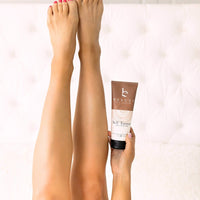








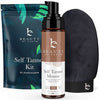

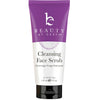


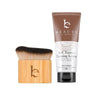







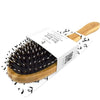
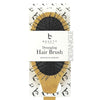
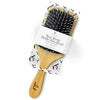

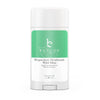





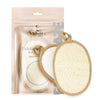
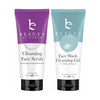










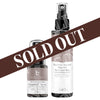




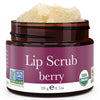
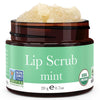
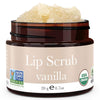





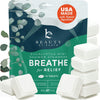
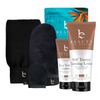
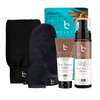


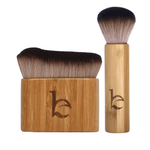
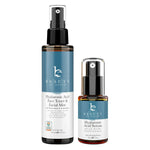

























join the conversation